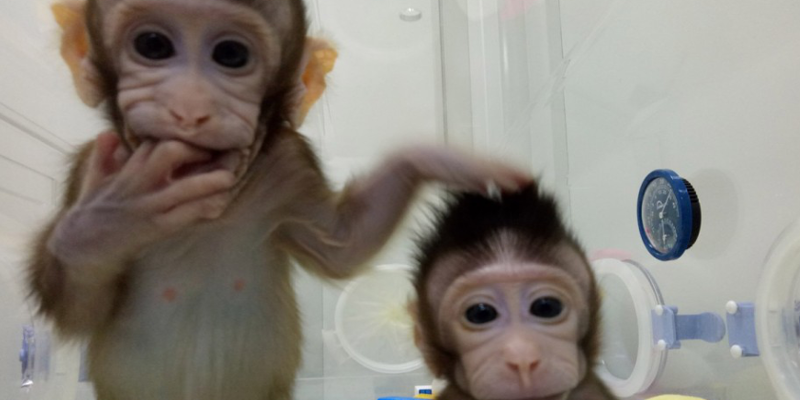A laboratory in China has successfully clones two monkeys using the same technique which once enabled scientists to clone a sheep a decade ago. This development, many fears, could lead to humans being cloned next in laboratories.
ABC News reported that Zhong Zhong and Hua Hua, two long-tailed macaques, were born in a laboratory six and eight weeks ago, registering them as the first cloned primates in the world. It said that the two monkeys were cloned from a non-embryonic cell, meaning that they have not been developed from a womb.
Scientists were able to successfully clone the animals using a process called somatic cell nuclear transfer (SCNT). In this process, the nucleus of a cell, in which the DNA is included, is transferred to an egg which does not contain nucleus or has its nucleus removed.
“Humans are primates. So [for] the cloning of primate species, including humans, the technical barrier is now broken,” ABC quoted Muming Poo, a supervisor of the project, as saying.
The research was done at the Chinese Academy of Sciences Institute of Neuroscience in Shanghai. It said that the cloning would be a boon for humans as it would enable them to conduct researches to study diseases in populations of genetically uniform monkeys.
As of now, the scientists say that “there is no intention to apply this method to humans.”
However, the success rate of cloning remains extremely low as the two monkeys were produced after the use of 127 eggs.
“Three years ago, for example, researchers at Sun Yat-sen University in Guangzhou caused a furore when they reported carrying out the first experiment to edit the DNA of human embryos, although similar work has now been done in the United States,” ABC News reported on the development from China.







Leave a Reply